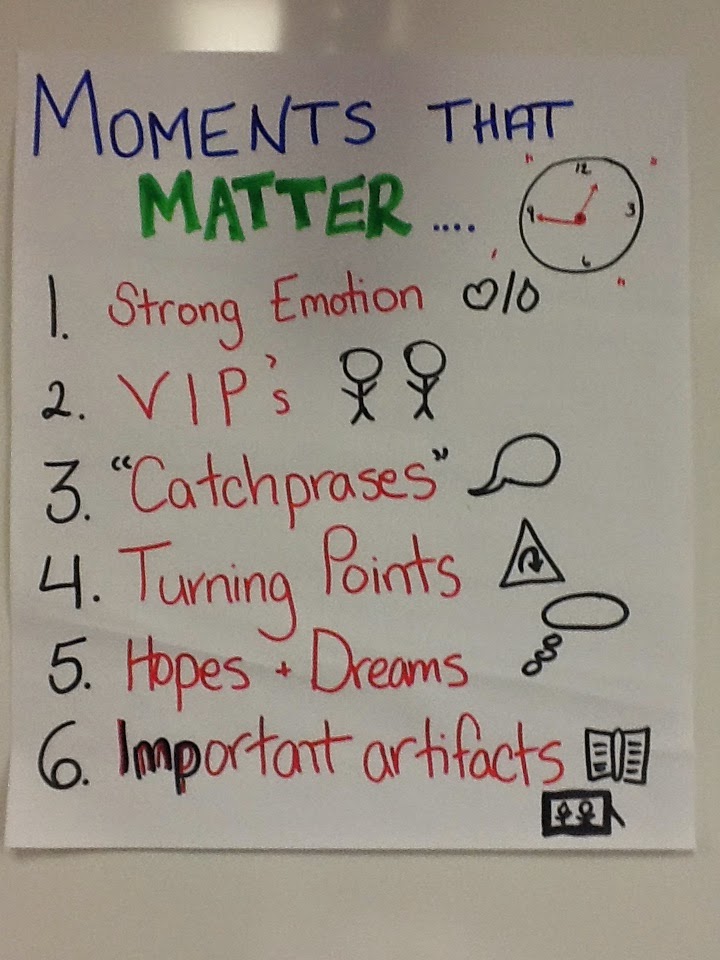Since the early civilizations, people have taught lessons by sharing stories. We need to dig down to the root of stories about our own lives; figure out how to take what we learned from that experience; and package it with the intent of passing on our new-found wisdom to others.
I have what I consider to be a "healthy fear" of spiders and other insects. However, when I encounter creepy crawlies with my kids, I make sure that I put on a brave face to prevent them from inheriting my irrational feelings about bugs. I will calmly pick up a grasshopper and set it free in nearby shrubbery while my kids are watching, even though I am cringing on the inside. If I were to write a story about having to be brave in front of my kids I might focus around the theme that "sometimes being brave for others forces us to find some inner strength." I would use a detailed narrative about a specific moment in my life that demonstrates the lesson I was trying to convey. The story would be my "proof" or "evidence" that supports the validity of my claim that sometimes it is necessary to put on a brave face for others.






















